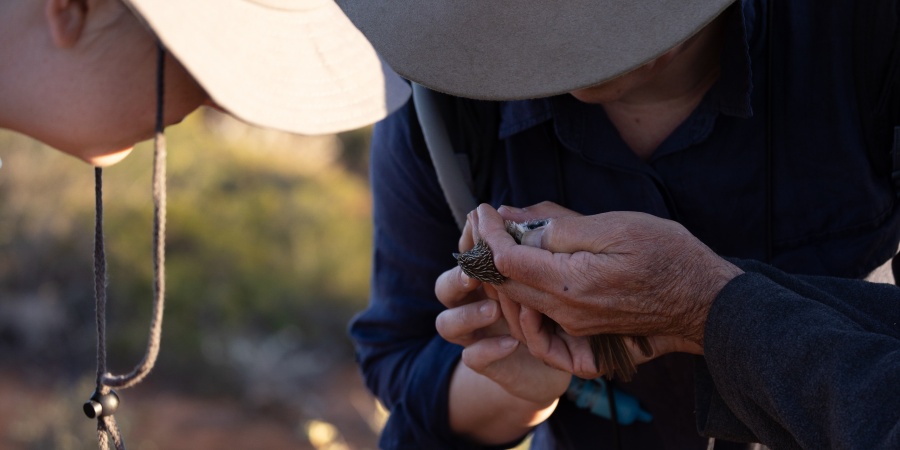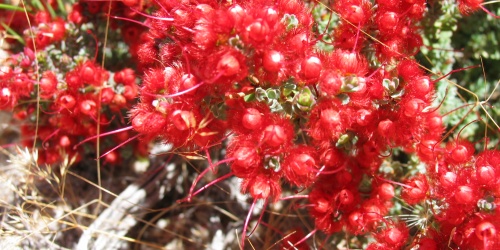
Grasswren translocation underway at Dirk Hartog Island National Park (Photo: DBCA)
Under the Biodiversity Conservation Act, the department has responsibility for the protection and conservation of biodiversity in Western Australia. Conservation translocations, captive breeding and seed production areas are important tools for promoting the recovery of threatened species. When significant barriers to dispersal and recolonisation exist, conservation translocations may be the best way to augment existing populations, establish new populations or re-establish extinct populations.
Translocation, captive breeding and seed production area proposals for conservation significant species can be high risk actions with considerable uncertainty in their outcomes and are undertaken where considered necessary and beneficial for species conservation. As translocation, captive breeding and seed production area outcomes can be unpredictable, these activities should not be a substitute for in situ conservation actions.
The department’s approach to conservation translocations, captive breeding and seed production areas is aligned with current best practice methods, as outlined in:
- IUCN/SSC (2013) Guidelines for Reintroductions and Other Conservation Translocations. Version 1.0. IUCN Species Survival Commission, Gland, Switzerland
- Commander et al. (2018) Guidelines for the Translocation of Threatened Plants in Australia. Third Edition. Australian Network for Plant Conservation, Canberra
- Code of Practice for Wildlife Rehabilitation in Western Australia, Department of Biodiversity, Conservation and Attractions, Perth
Translocation, captive breeding and seed production area proposals
All proposals for translocation, captive breeding and seed production areas require the approval of the Executive Director, Biodiversity and Conservation Science. This is in accordance with Corporate Guideline 36 - Conservation of Species Through Translocation.
Proposals involving threatened species will require further authorisation under section 40 of the BC Act. Additionally, all translocation and captive breeding programs for vertebrate fauna require approval by a registered Animal Ethics Committee under the Animal Welfare Act.
Approval of a proposal will not be guaranteed or made more likely by pre-emptively breeding or propagating individuals, investing in site works or facilities or obtaining project funding prior to the development or assessment of the proposal. Proponents are strongly advised to seek in-principle agreement from the department prior to conducting any such activities.
For further information please contact the Species and Communities Program (speciesandcommunities@dbca.wa.gov.au).
